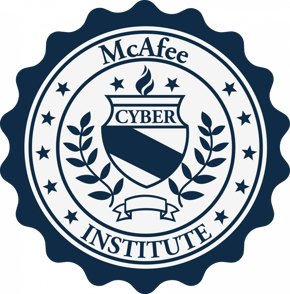In an era where information is both a tool and a weapon, the intelligence process stands as a precursor against threats and a pathfinder for opportunities. It's a system designed to handle the vast data flowing through modern channels, turning raw data into actionable insights. This guide provides an expert-level view into each stage of the intelligence process.
Planning and Direction in the Intelligence Process
Planning and direction form the backbone of the intelligence process. Understanding the requirements and setting the direction involves defining intelligence needs, planning the collection, and reviewing collected data to ensure accuracy and relevance.
This stage requires a comprehensive understanding of the current information landscape and the specific data necessary for decision-making. An effective analyst needs to understand the intricate connections within data sets and to ask the right questions.
Intelligence Collection in the Digital Era
Collection is where raw data is gathered from various sources. In the digital era, this includes not just traditional channels, like human intelligence (HUMINT) or signal intelligence (SIGINT), but also open source intelligence (OSINT), where data from publicly available sources is used.
Collection in today's world demands a knowledge of digital platforms and data scraping techniques, as well as an understanding of legal and ethical considerations in data gathering. This stage is as much about knowing where to look as it is about what to look for.
Processing and Exploitation of Information
After collection, the raw data must be processed and exploited to make it usable. This could involve tasks such as translating text from a foreign language, decoding encrypted messages, or sorting through large volumes of data to identify relevant information.
In the modern world, processing can be assisted by machine learning algorithms and natural language processing (NLP) tools. However, these tools require skillful operators who understand their strengths and limitations.
Intelligence Analysis and Production
The analysis and production stage is where the processed data is evaluated and turned into intelligence. This involves critical thinking, logical reasoning, and a good understanding of the context in which the data will be used.
Analysts need to draw upon their understanding of broader trends and issues, and they may use predictive modeling and other advanced analytical techniques. It is at this stage that data transforms into insights that can guide decision-making.
Dissemination and Consumption of Intelligence
The final product must then be disseminated to the consumers of intelligence - decision-makers who will act on the insights provided. This stage involves understanding the needs of these consumers and presenting the intelligence in a form that is easy to understand and act upon. Effective dissemination is about communication skills and understanding the needs of different audiences. It ensures that the hard work done in the previous stages results in actionable intelligence that leads to informed decisions.
Feedback: The Lifeblood of Improvement
Feedback, though not officially a stage in the intelligence process, is crucial for continuous improvement. It involves getting input from intelligence consumers and adjusting the process accordingly. Whether it's refining collection methods or improving dissemination techniques, feedback can drive continuous improvement in the intelligence process, enhancing its effectiveness and efficiency.
Mastering the Intelligence Process with McAfee Institute
At McAfee Institute, our goal is to equip intelligence professionals with the skills and knowledge they need to excel in their roles. Our Board Certifications, like the Certified in Open Source Intelligence (COSINT), provide a thorough understanding of the intelligence process, alongside practical skills for each stage.
Our programs provide a deep dive into the planning and direction, collection, processing, analysis, dissemination, and feedback stages of the intelligence process. They also cover the use of modern tools, techniques, and ethical guidelines for intelligence work in the digital age.
Furthermore, we ensure our learners are well-equipped to handle the dynamic nature of the intelligence field. Our interactive learning approach includes real-world scenarios, case studies, and discussions, fostering critical thinking and problem-solving skills.
But the learning doesn't stop after certification. Our graduates become part of a professional community where they can exchange insights, ask questions, and learn from each other's experiences. This continuous learning environment keeps them updated on industry trends, new tools, and evolving best practices.
If you are ready to delve into the intricacies of the intelligence process and master its art in the digital age, explore our McAfee Institute Board Certifications and Take the first step towards becoming an intelligence professional who can navigate the complex world of data and make sense of the chaos. Choose McAfee Institute, where learning meets real-world expertise.

-1.png?width=150&height=75&name=McAfee%20(3)-1.png)
.png?width=150&height=75&name=McAfee%20(3).png)
